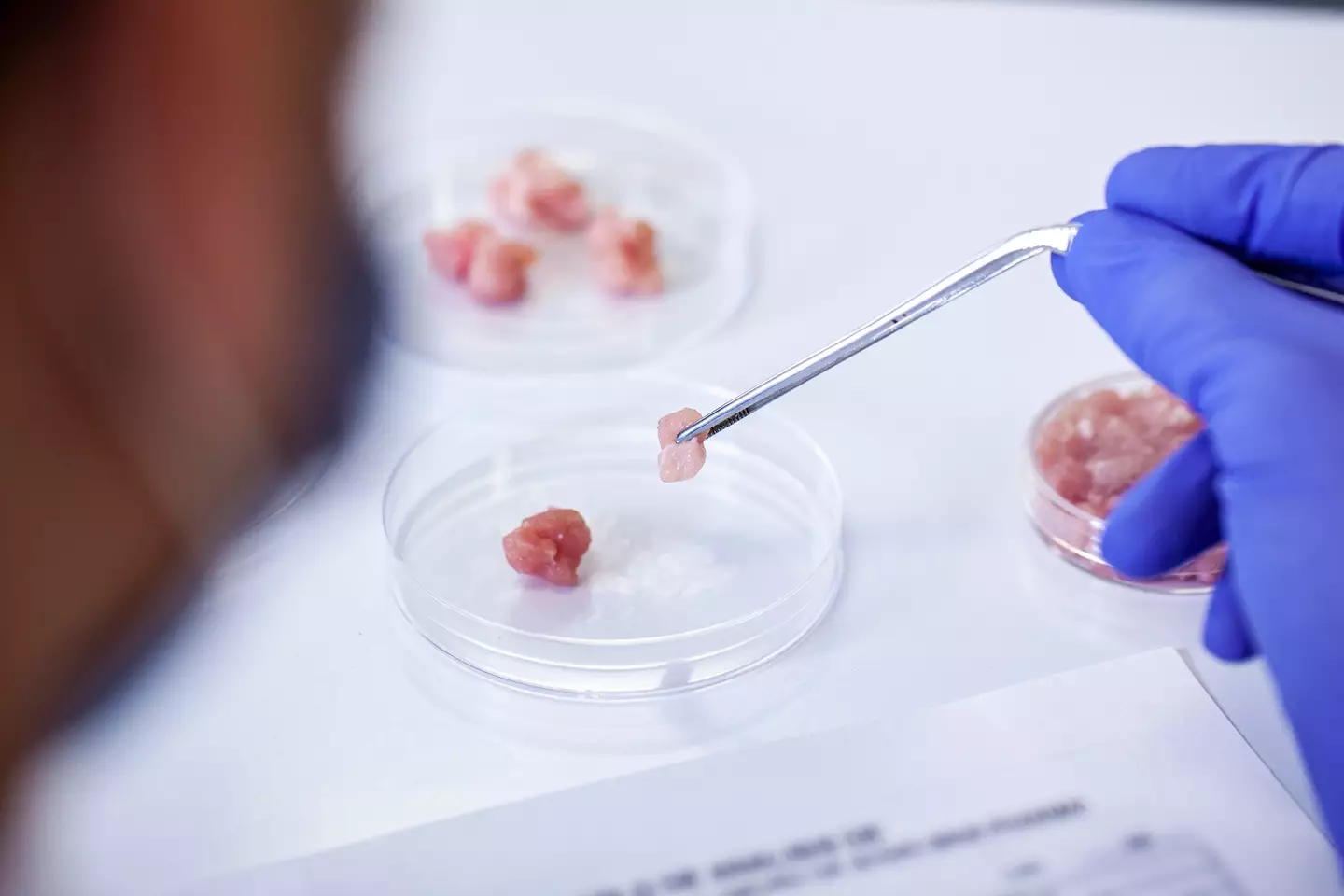
It’s no secret that the meat industry is bad news for the environment.
Meat and dairy production accounts for a whopping 14.5% of global greenhouse gas emissions. By comparison, aviation accounts for 2.5% of global emissions.
There are also widespread ethical concerns around meat production, pertaining both to the quality of life available to mass-farmed animals and whether slaughter practices are humane.

Advert
None of this is to shame anyone who eats meat. It is, after all, an incredible source of protein, it tastes great, and it can serve as a handy backbone of a nutritious and varied diet.
However, it’s not hard to see why some people would prefer to abstain through vegetarianism, pescatarianism, and veganism. In the UK, 12% of people follow meat-free diets, and it seems the trend is continuing to grow with 14.6% considering making the switch in 2025.
With this shift in consumer trends, a need to curb emissions more generally, and an appetite for meat that’s at odds with people’s less-voracious appetites for animal abuse, it’s no wonder there’s so much interest in lab-grown meat.
It’s been reported that half of Gen Z would be happy to eat the stuff, and new breakthroughs are being made all the time. A lab in San Francisco has just won FDA approval for its lab-grown salmon, for example.
However, lab meat-curious Texans might never get the option, with a temporary ban on lab-grown meat having just been signed by Governor Greg Abbott.
Senate Bill 261 was signed on 20 June 2025 and it bans the sale of lab-grown meat for human consumption within the Lone Star State. The ban runs for two years from 1 September 2025 and details ‘criminal and civil penalties’ for anyone who breaches it.
“Governor Abbott signed SB 261 into law to protect Texas’ thriving cattle industry and consumers while simultaneously providing time for further research into cell-cultured protein technologies,” Press Secretary Andrew Mahaleris told The Dallas Express.
“Texans have a God-given right to know what’s on their plate, and for millions of Texans, it better come from a pasture, not a lab,” said Texas Agriculture Commissioner Sid Miller said in a press release.
“It’s plain cowboy logic that we must safeguard our real, authentic meat industry from synthetic alternatives.”
While we’re still in the relatively early days of lab-grown meat, and there are still questions over how we might produce it sustainably at an industrial level, the move in Texas will come as a disappointment for those who hope lab-grown meat will help to cut emissions, improve food security, and provide meat for those who object to its consumption on ethical grounds.

The first US Department of Agriculture-approved lab meat was ‘cell-cultivated chicken’, with it being approved for sale in 2023.
Cell cultivation involves taking cells from living specimens and then placing them in precise lab conditions where they can multiply into edible tissue.
Scepticism around alternative protein sources in nothing new, of course, although research indicates that many people are open to or ambivalent about the idea.
